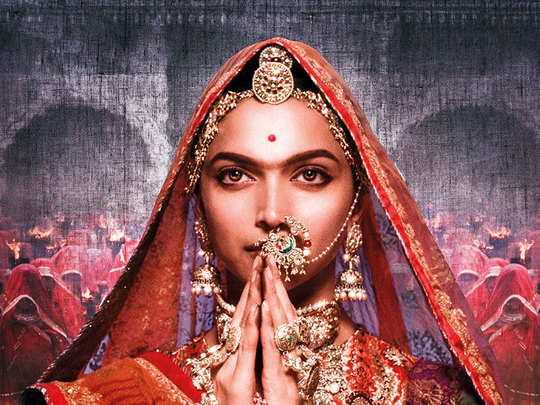
A film that divided India over its polarised inability to decode fact from fiction has finally crossed the finish line, with Padmaavat winning the war against death threats, protests, delays, calls for a ban and even a change in its name.
The historic epic, starring Deepika Padukone, Shahid Kapoor and Ranveer Singh, opened to media screenings on Tuesday ahead of its global release on January 25, with early reviews dividing another group of people theorising whether the Sanjay Leela Bhansali production is his ‘most accomplished movie to date’ or an ‘overlong snoozefest’.
While most reviews have taken the middle road, praising the Padmaavat stars, the film’s handling has been called an “all-out assault on the senses” by NDTV, while The Hindu states “the opulence doesn’t seem as awe-inspiring, the special effects, especially in some of the battle scenes, are plain tacky and the actors seem like cardboard dolls of themselves in the long shots.”
ON-SCREEN PERFORMANCES
Social media is also abuzz about Singh’s menacing turn as Alauddin Khilji, Bhansali’s almost demonic characterisation of the ruler who dared to challenge the might of the Rajputs.
While the Mumbai Mirror praises Padukone’s Rani Padmini — even offering a grudging flattering mention of Kapoor’s Maharawal Ratan Singh — it was Singh who stole the spotlight, with the review stating: “His ability to alternately convey intimidation and diffuse tension furnishes his Khilji as a delightful dread one can’t ignore.”
Film trade analyst Taran Adarsh goes a step further in his review with entertainment portal Bollywood Hungama, writing: “Although the actor [Singh] has delivered sparkling performances in the two collaborations with Bhansali [Goliyon Ki Rasleela Ram Leela and Bajirao Mastani], you’ve got to watch him as the treacherous, vicious, vindictive and villainous Khilji… Ranveer doesn’t just play Khilji; he inhabits him. It’s an astounding, gutsy performance.”
Despite the elaborate battle scenes in the film’s second half, Padmaavat has been described as essentially a love story at heart — be it between the queen and her king or an evil ruler desiring a woman he has yet to lay eyes on.
The DNA describes it as “a love story with a difference because throughout Khilji never actually sets eyes on Padmavati, the object of his fantasy. And yet, Bhansali masterfully conveys so much madness and mayhem.”
The Deccan Chronicle weighed in, saying: “Shahid Kapoor gives an earnest performance. Also, Deepika and Shahid’s chemistry is ravishing. They sizzle in every scene they are in together.”
However, not everyone is as admiring of Kapoor’s attempts to woo his ladylove in the film, with some reviewers calling him “insipid”, while one review brutally states: “The film’s cardboard nature is exemplified by Shahid Kapoor.”
BHANSALI’S BATTLE
As a director, Bhansali’s previous film outings have been the subject of heated debates — be it Saawariya, Guzaarish or even Bajirao Mastani — over its excesses, with cumbersome sequences that are meant to draw out drama but come across as unnecessary to the narrative.
One can probably expect the same treatment from Bhansali this time around with the film’s runtime set at two hours and 44 minutes.
Several reviews have termed the film’s first-half a drag, and The Hindu doesn’t hold back the criticism, saying: “Padmaavat is an interminable expanse of unadulterated dullness,” also calling it the Bhansali school of cinema with “the unapologetic gloss, the visual excesses, the heightened emotions…”
The question now remains if Padmaavat is able to rise above its trappings as Indian film critic Anupama Chopra puts it: “Padmaavat is a thing of beauty. But films are not paintings. They need a beating heart to come alive.”
Whether the film possesses a beating heart for fans to set the cash registers ringing at the box office remains to be seen over the next few days.
Don’t miss it!
Padmaavat releases in UAE cinemas on January 25









